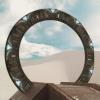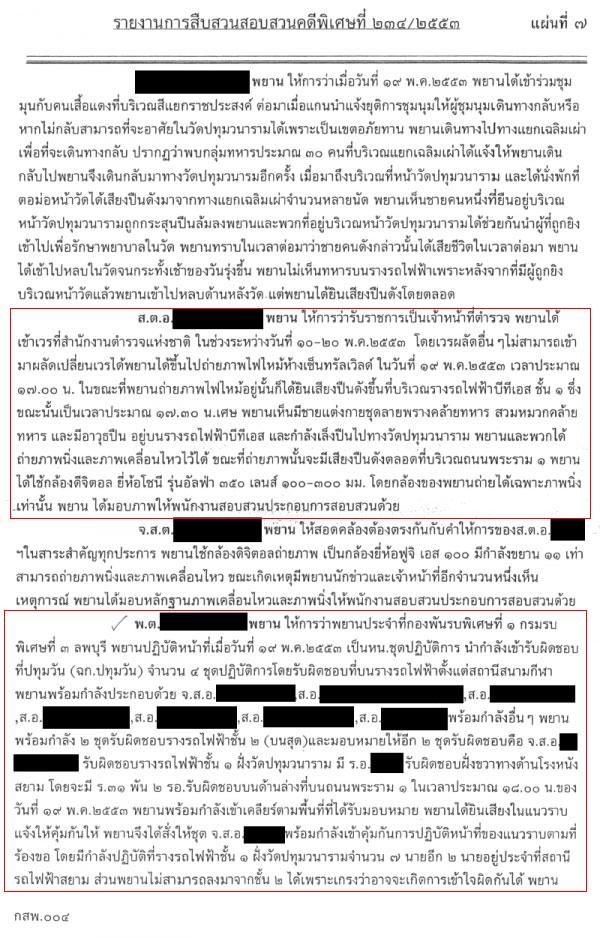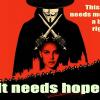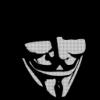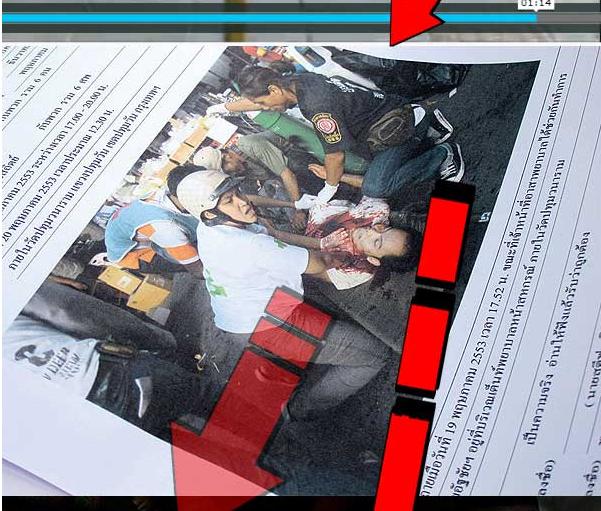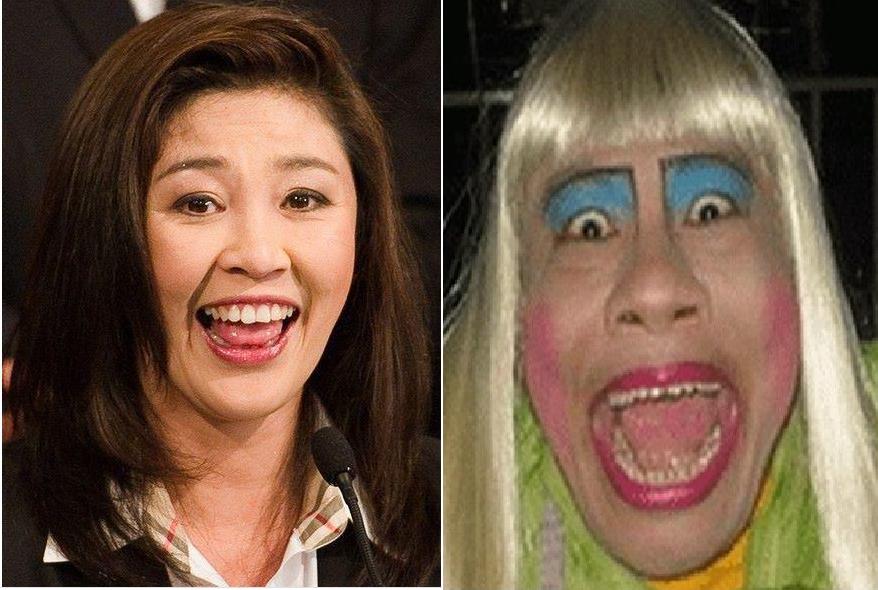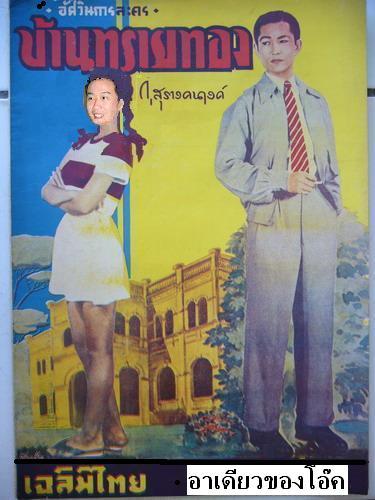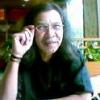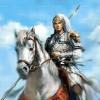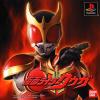ในบทสัมภาษณ์แมกกินน่อน นักข่าวข้างบน แกบอกให้ไปอ่านรายงานเรียลไทม์ในทวิตเตอร์
http://twitter.com/b...ses/14280188259 ผมมันล้าสมัย ใช้ไม่เป็นเลยไปอ่านรายงานของเขาแทน ขอคัอตรงที่กล่าวถึงวัดปทุมมาลงไว้ ผมว่าเขาเขียนอย่างเป็นกลางมาก จะอ่านให้ข้างใหนได้ประโยชน์ก็ได้หมด แต่สิ่งสำคัญที่พบในรายงานของเขาคือ มีประกาศหยุดยิงโดยศอฉ. ซึ่งหมายความว่า มีการต่อสู้กันและสองฝ่ายต้องการเคลียคนเจ็บ
เขาบอกอีกว่า เห็นนปช. ที่สถานนีชิดลม ตรงนี้สำคัญมาก เพราะเรารู้ว่าทหารอยู่ที่สยาม แปลว่าระหว่างกลางคือสมรภูมิ
เขารายงานว่ามีการยิงกันอย่างหนัก คำถามคือทหารน่ะยิงแน่ แต่ยิงกับใคร และคงจำได้ว่า ตอนบ่ายมีทหารและนักข่าวเสียชีวิต บาดเจ็บสาหัสจากระเบิดลงที่สวนลุม....นี่คือผลงานของนปช. และทหารได้รับคำสั่งให้ยิงด้วยกระสุนจริง
รายงานของเขามีหลายอย่างต่างไปจากบทความภาษาไทยที่สิงห์ไปเอามา ผมไม่มีต้นฉบับก่อนแปลไทย หวังว่าจะแปลได้ตรง แต่เท่าที่อ่านแล้วดูเหมือนเขาจะเป็นสื่อต่างขาติเพียงกลุ่มเดียวที่นั่น ย่อมจะเห็นไม่ทั่วถึง
เชิญอ่านครับ
http://www.theglobea...4330192/?page=3Someone had tossed two fireworks toward the soldiers, who by now were in control of the stage area, drawing a furious response. A gun battle raged in the fading light and into the threatening dark that followed.
As bullets whizzed into the supposed sanctuary of the temple, Rob and I took refuge with a pair of young monks who allowed us into their quarters. They had an Internet connection, allowing us to see for the first time in hours just how dangerous the area around us had become. Their television set proved less useful, as a government order had gone out prohibiting live coverage of the crackdown.
As I surfed various news sites for clues about how long we might be trapped in the temple, I got a heart-stopping phone call. It was Andrew. "Mate, I've been shot," he said.
He was still near the front gate, bleeding profusely from six shotgun pellets embedded in his right thigh. There were volunteer medics with him, but the gunfire was so intense that they couldn't take him to the hospital directly across the street.
They took him the other way instead, into the royal park behind the temple, where they dressed his wounds at a makeshift field hospital and laid him out on a lawn chair beside six other groaning gunshot victims.
There was little we could do except call for help. Rob and I worked our mobile phones, raising the alarm at the Canadian and British embassies, as well as the hospitals and office of the man who ordered the crackdown, Prime Minister Abhisit Vejjajiva. I used my BlackBerry to ask those following me on Twitter to spread the word that people were under fire and dying in Wat Pathum.
We knew we were taking advantage of our special status in Thailand as foreigners and journalists to get ourselves out of a situation into which we had willingly put ourselves. But we had no other choice. Not only was Andrew unable to move, another man two mattresses away looked on the verge of death, having been shot in the back.
Long hours passed. The gunfire subsided, then roared again. Mysterious explosions went off in the dark. The panic level rose.
Just as we were preparing to spend the night in the temple park - with Andrew complaining that his leg was going numb - I got a series of phone calls from an aid worker somewhere in the city. I couldn't make out her name, but she had wonderful news. A ceasefire had been arranged so that ambulances could approach the temple and take Andrew and the other wounded to hospital.
We carried the stretchers out one by one into street where the red ambulance lights cast a surreal glow on the debris around us. Andrew insisted we carry him last in case they had only come to rescue the foreigner, but those left behind still looked enviously at us as we left.
An ambulance attendant asked me to go back into the temple and pass on the message that they would try and come back in the morning for at least the women and old people, as well as anyone else who was wounded.
It was small comfort to those left to spend the night in Wat Pathum. The morning was far away, and the men with guns were far closer.
Edited by amplepoor, 2 กันยายน พ.ศ. 2555 - 01:42.








